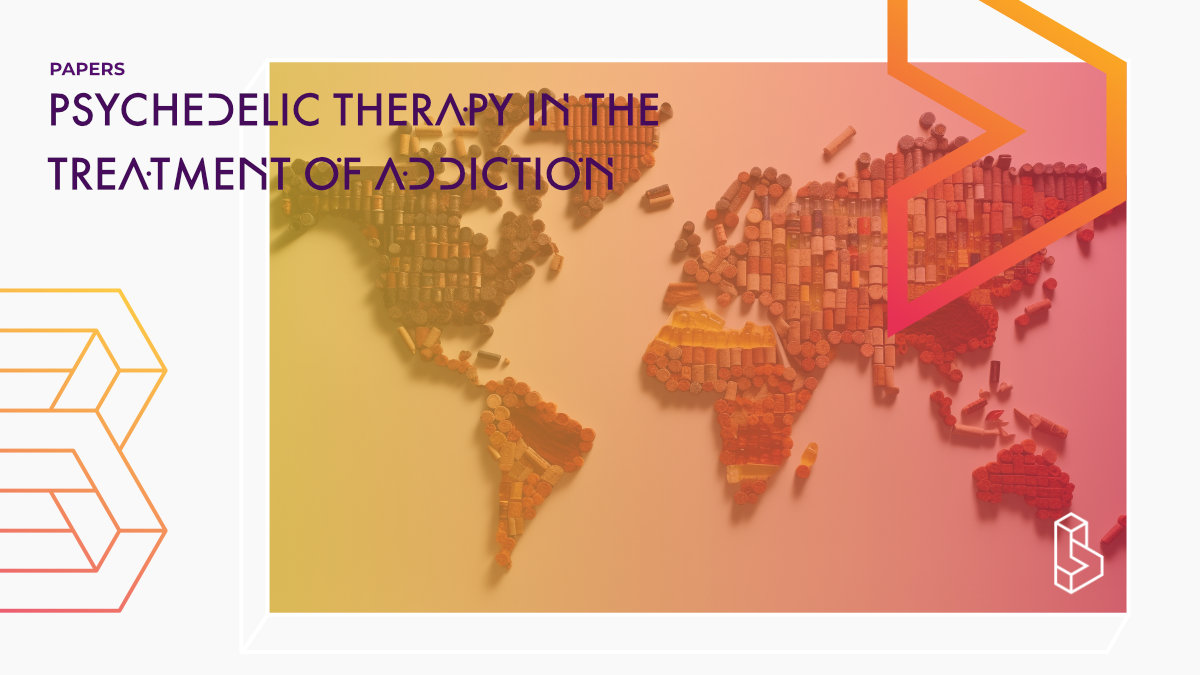This review (2023) charts the resurgence of interest in psychedelic therapy for treating addiction, beginning with historical studies from the mid-late 1900s, then examining real-world evidence from naturalistic, observational, and survey-based studies, and contemporary clinical trials ranging from first-in-human to Phase II. It also explores translational human neuropsychopharmacology techniques like fMRI and PET to understand the therapeutic mechanisms of psychedelics.
Abstract of Psychedelic therapy in the treatment of addiction
“Psychedelic therapy has witnessed a resurgence in interest in the last decade from the scientific and medical communities with evidence now building for its safety and efficacy in treating a range of psychiatric disorders including addiction. In this review we will chart the research investigating the role of these interventions in individuals with addiction beginning with an overview of the current socioeconomic impact of addiction, treatment options, and outcomes. We will start by examining historical studies from the first psychedelic research era of the mid-late 1900s, followed by an overview of the available real-world evidence gathered from naturalistic, observational, and survey-based studies. We will then cover modern-day clinical trials of psychedelic therapies in addiction from first-in-human to phase II clinical trials. Finally, we will provide an overview of the different translational human neuropsychopharmacology techniques, including functional magnetic resonance imaging (fMRI) and positron emission tomography (PET), that can be applied to foster a mechanistic understanding of therapeutic mechanisms. A more granular understanding of the treatment effects of psychedelics will facilitate the optimisation of the psychedelic therapy drug development landscape, and ultimately improve patient outcomes.”
Authors: Rayyan Zafar, Maxim Siegel, Rebecca Harding, Tommaso Barba, Claudio Agnorelli, Shayam Suseelan, Leor Roseman, Matthew Wall, David J. Nutt & David Erritzoe
Summary of Psychedelic therapy in the treatment of addiction
Addiction is a chronic relapsing medical condition with a global prevalence that has increased substantially between 1990 and 2016, with alcohol dependence being the most prevalent. It is an economically crippling disorder that impacts employment, productivity, public health and the judicial-legal system.
Despite the morbidity of SUDs and behavioural addictions, only 10% of those identified as needing treatment are able to access specialist services. The reasons for this lack of access are multifactorial and are reported in the UK government-commissioned independent review of drugs from August 2021.
Find this paper
Psychedelic therapy in the treatment of addiction: the past, present and future
https://doi.org/10.3389/fpsyt.2023.1183740
Open Access | Google Scholar | Backup | 🕊
Cite this paper (APA)
Zafar, R., Siegel, M., Harding, R., Barba, T., Agnorelli, C., Suseelan, S., ... & Erritzoe, D. Psychedelic therapy in the treatment of addiction: The past, present and future. Frontiers in Psychiatry, 14, 990.
Authors
Authors associated with this publication with profiles on Blossom
David NuttDavid John Nutt is a great advocate for looking at drugs and their harm objectively and scientifically. This got him dismissed as ACMD (Advisory Council on the Misuse of Drugs) chairman.
David Erritzoe
David Erritzoe is the clinical director of the Centre for Psychedelic Research at Imperial College London. His work focuses on brain imaging (PET/(f)MRI).
Leor Roseman
Leor Roseman is a researcher at the Centre for Psychedelic Research, Imperial College London. His work focussed on psilocybin for depression, but is now related to peace-building through psychedelics.
Institutes
Institutes associated with this publication
Imperial College LondonThe Centre for Psychedelic Research studies the action (in the brain) and clinical use of psychedelics, with a focus on depression.

